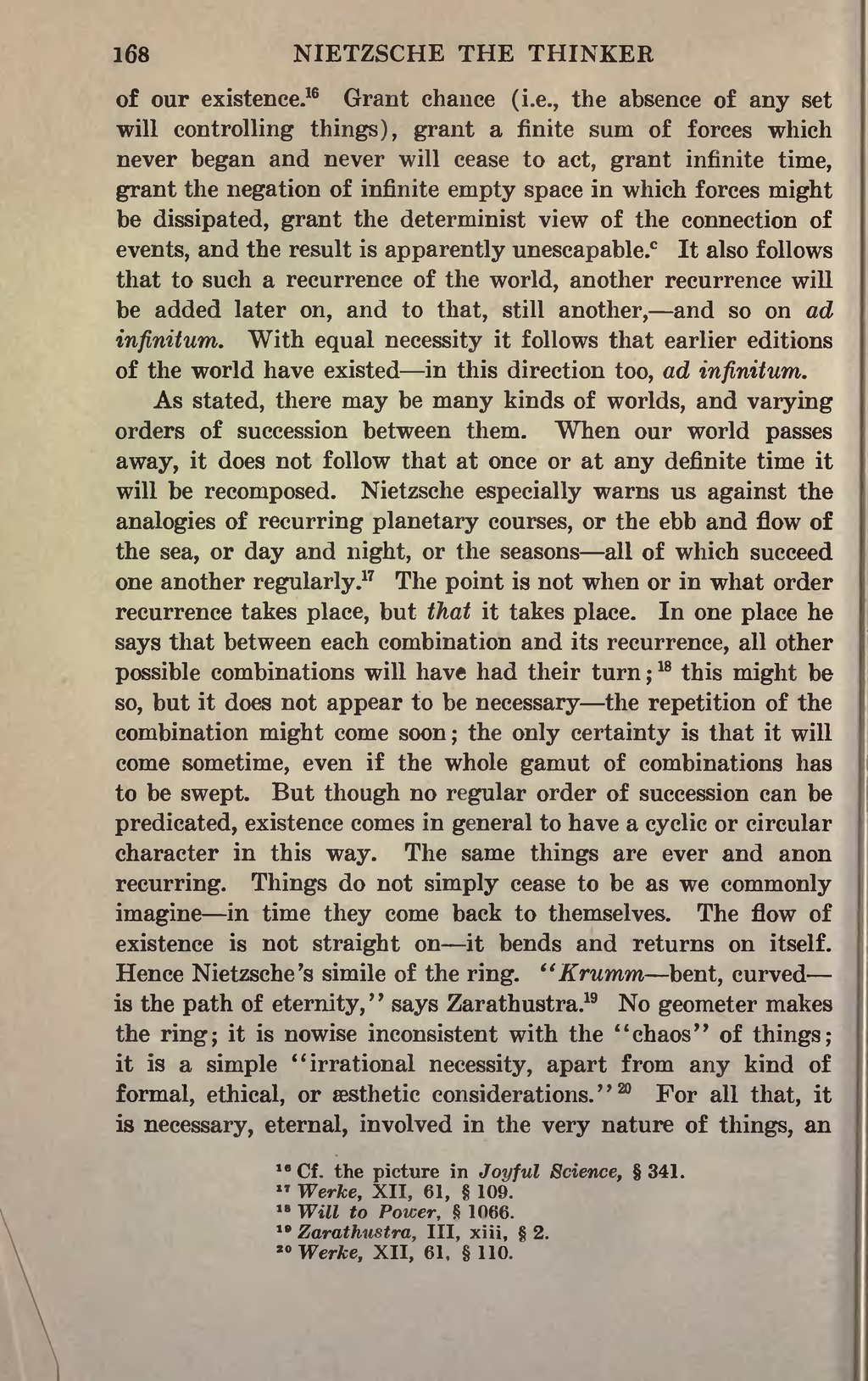of our existence.[1] Grant chance (i.e., the absence of any set will controlling things), grant a finite sum of forces which never began and never will cease to act, grant infinite time, grant the negation of infinite empty space in which forces might be dissipated, grant the determinist view of the connection of events, and the result is apparently unescapable.c It also follows that to such a recurrence of the world, another recurrence will be added later on, and to that, still another,—and so on ad infinitum. With equal necessity it follows that earlier editions of the world have existed—in this direction too, ad infinitum.
As stated, there may be many kinds of worlds, and varying orders of succession between them. When our world passes away, it does not follow that at once or at any definite time it will be recomposed. Nietzsche especially warns us against the analogies of recurring planetary courses, or the ebb and flow of the sea, or day and night, or the seasons—all of which succeed one another regularly.[2] The point is not when or in what order recurrence takes place, but that it takes place. In one place he says that between each combination and its recurrence, all other possible combinations will have had their turn;[3] this might be so, but it does not appear to be necessary—the repetition of the combination might come soon; the only certainty is that it will come sometime, even if the whole gamut of combinations has to be swept. But though no regular order of succession can be predicated, existence comes in general to have a cyclic or circular character in this way. The same things are ever and anon recurring. Things do not simply cease to be as we commonly imagine—in time they come back to themselves. The flow of existence is not straight on—it bends and returns on itself. Hence Nietzsche's simile of the ring. "Krumm—bent, curved-is the path of eternity," says Zarathustra.[4] No geometer makes the ring; it is nowise inconsistent with the "chaos" of things; it is a simple "irrational necessity, apart from any kind of formal, ethical, or æsthetic considerations."[5] For all that, it is necessary, eternal, involved in the very nature of things, an
